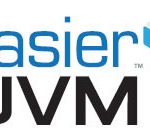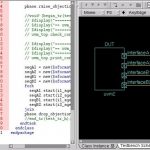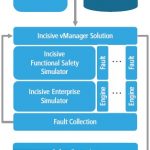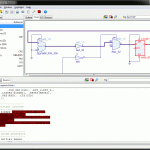In one of my whitepapers “SoCs in New Context – Look beyond PPA”, I had mentioned about several considerations which have become very important in addition to power, performance, and area (PPA) of an SoC. This whitepaper was also posted in parts as blogs on Semiwiki (links are mentioned below). Two important… Read More
Tag: systemverilog
Webinar alert – Taking UVM to the FPGA bank
UVM has become a preferred environment for functional verification. Fundamentally, it is a host based software simulation. Is there a way to capture the benefits of UVM with hardware acceleration on an FPGA-based prototyping system? In an upcoming webinar, Doulos CTO John Aynsley answers this with a resounding yes.… Read More
Design units come to faster Riviera-PRO release
For the latest incremental improvements to its Riviera-PRO functional verification platform, Aldec has turned to streamlining random constraint performance. The new Riviera-PRO 2016.02 release also is now fully supported on Windows 10 and adds a new debugger tool.… Read More
Pushing on AXI-connected IP in FPGAs
Success stories are great. Reading how someone uses a product contributes much more insight than reading about a product. Last month we had a teaser for a presentation by Wave Semiconductor; this month, we have the slides showing how they are using FPGA-based prototyping, AXI transactions, and DPI to speed up development.
First,… Read More
Never Imagined So Easy Class-based Testbench Debugging
When it comes to debugging a design testbench organized in object-oriented style with objects, component hierarchies, macros, transactions and so on, it becomes an onerous, tasteless, and thankless task for RTL verification engineers who generally lag in software expertise. Moreover, class-based debugging tools have lagged… Read More
UVM Debugging Made Easy & Productive in Questa
As design complexity and size is increasing, SoC verification has become one of the most difficult and time consuming tasks in the design closure.UVM (Universal Verification Methodology, an accellera initiative) is one of the best verification methodologies that support common language, coherent strategy, clarity and transparency… Read More
Ensuring Safety Distinctive Design & Verification
In today’s world where every device functions intelligently, it automatically becomes active on any kind of stimulus. The problem with such intelligence is that it can function unfavorably on any kind of bad stimulus. As the devices are complex enough in the form of SoCs (which at advanced process nodes are more susceptible to … Read More
Expert Tool to Easily Debug RTL and Reuse in SoCs
SoC design these days has become a complex and tricky phenomenon involving integration of multiple IPs and legacy RTL code which could be in different languages, sourced from various third parties across the globe. Understanding and reusing RTL code is imperative in SoC integration which needs capable tools that can accommodate… Read More
Designing Hardware with C++ and its Advantages
Very recently, I was seeing intense discussions on the need for agile hardware development just like agile software and ideas were being sought from experts as well as individuals. While in software world it has already evolved, in hardware world it’s yet to see the shift in paradigm. My point is that the end goal of agile hardware… Read More
Design & EDA Collaboration Advances Mixed-Signal Verification through VCS AMS
Last week it was a rare opportunity for me to attend a webinar where an SoC design house, a leading IP provider and a leading EDA tool provider joined together to present on how the tool capabilities are being used for advanced mixed-signal simulation of large designs, faster with accuracy. It’s always been a struggle to combine design… Read More







